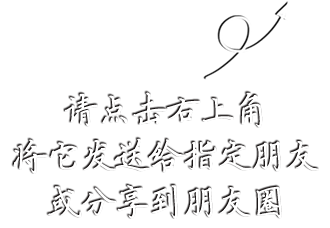object以前用MapX,里面有专题图,挺好。经过几天的试验,我把MapObjects中的各种渲染效果(类似MapX专题图,但不一样)都试了试,下面附上源代码,如果那位有不懂的地方请自己琢磨,哈哈…
代码如下:
using System;
using System.Drawing;
using System.Collections;
using System.ComponentModel;
using System.Windows.Forms;
using System.Data;
namespace DbInMo
{
/// <summary>
/// Form1 的摘要说明。
/// </summary>
public class 渲染示例 : System.Windows.Forms.Form
{
private AxMapObjects2.AxMap map;
private System.Windows.Forms.Button 直方图;
private System.Windows.Forms.Button 饼图;
private System.Windows.Forms.Button 点密度;
private System.Windows.Forms.Button 按值渲染;
private System.Windows.Forms.Button 分类渲染;
private System.Windows.Forms.Button Z值渲染;
private System.Windows.Forms.Button 组渲染;
private System.Windows.Forms.Button 退出;
private System.Windows.Forms.Panel 操作板;
private System.Windows.Forms.Button 删除所有渲染;
private System.Windows.Forms.Panel panel1;
private System.Windows.Forms.Button 全图;
private System.Windows.Forms.Button 拖动;
private System.Windows.Forms.Button 缩小;
private System.Windows.Forms.Button 放大;
private System.Windows.Forms.Panel 分隔符;
private System.Windows.Forms.Button 标注渲染;
/// <summary>
/// 必需的设计器变量。
/// </summary>
private System.ComponentModel.Container components = null;
public 渲染示例()
{
//
// Windows 窗体设计器支持所必需的
//
InitializeComponent();
//
// TODO: 在 InitializeComponent 调用后添加任何构造函数代码
//
}
/// <summary>
/// 清理所有正在使用的资源。
/// </summary>
protected override void Dispose( bool disposing )
{
if( disposing )
{
if (components != null)
{
components.Dispose();
}
}
base.Dispose( disposing );
}
#region Windows 窗体设计器生成的代码
/// <summary>
/// 设计器支持所需的方法 - 不要使用代码编辑器修改
/// 此方法的内容。
/// </summary>
private void InitializeComponent()
{
System.Resources.ResourceManager resources = new System.Resources.ResourceManager(typeof(渲染示例));
this.map = new AxMapObjects2.AxMap();
this.操作板 = new System.Windows.Forms.Panel();
this.直方图 = new System.Windows.Forms.Button();
this.饼图 = new System.Windows.Forms.Button();
this.点密度 = new System.Windows.Forms.Button();
this.按值渲染 = new System.Windows.Forms.Button();
this.分类渲染 = new System.Windows.Forms.Button();
this.Z值渲染 = new System.Windows.Forms.Button();
this.组渲染 = new System.Windows.Forms.Button();
this.退出 = new System.Windows.Forms.Button();
this.标注渲染 = new System.Windows.Forms.Button();
this.删除所有渲染 = new System.Windows.Forms.Button();
this.panel1 = new System.Windows.Forms.Panel();
this.全图 = new System.Windows.Forms.Button();
this.拖动 = new System.Windows.Forms.Button();
this.缩小 = new System.Windows.Forms.Button();
this.放大 = new System.Windows.Forms.Button();
this.分隔符 = new System.Windows.Forms.Panel();
((System.ComponentModel.ISupportInitialize)(this.map)).BeginInit();
this.操作板.SuspendLayout();
this.SuspendLayout();
//
// map
//
this.map.Dock = System.Windows.Forms.DockStyle.Fill;
this.map.Location = new System.Drawing.Point(0, 0);
this.map.Name = "map";
this.map.OcxState = ((System.Windows.Forms.AxHost.State)(resources.GetObject("map.OcxState")));
this.map.Size = new System.Drawing.Size(616, 429);
this.map.TabIndex = 0;
this.map.MouseDownEvent += new AxMapObjects2._DMapEvents_MouseDownEventHandler(this.map_MouseDownEvent);
//
// 操作板
//
this.操作板.BorderStyle = System.Windows.Forms.BorderStyle.Fixed3D;
this.操作板.Controls.Add(this.删除所有渲染);
this.操作板.Controls.Add(this.panel1);
this.操作板.Controls.Add(this.全图);
this.操作板.Controls.Add(this.拖动);
this.操作板.Controls.Add(this.缩小);
this.操作板.Controls.Add(this.放大);
this.操作板.Controls.Add(this.分隔符);
this.操作板.Controls.Add(this.标注渲染);
this.操作板.Controls.Add(this.退出);
this.操作板.Controls.Add(this.组渲染);
this.操作板.Controls.Add(this.Z值渲染);
this.操作板.Controls.Add(this.分类渲染);
this.操作板.Controls.Add(this.按值渲染);
this.操作板.Controls.Add(this.点密度);
this.操作板.Controls.Add(this.饼图);
this.操作板.Controls.Add(this.直方图);
this.操作板.Dock = System.Windows.Forms.DockStyle.Right;
this.操作板.Location = new System.Drawing.Point(496, 0);
this.操作板.Name = "操作板";
this.操作板.Size = new System.Drawing.Size(120, 429);
this.操作板.TabIndex = 1;
//
// 直方图
//
this.直方图.Dock = System.Windows.Forms.DockStyle.Top;
this.直方图.Location = new System.Drawing.Point(0, 0);
this.直方图.Name = "直方图";
this.直方图.Size = new System.Drawing.Size(116, 24);
this.直方图.TabIndex = 0;
this.直方图.Text = "直方图";
this.直方图.Click += new System.EventHandler(this.直方图_Click);
//
// 饼图
//
this.饼图.Dock = System.Windows.Forms.DockStyle.Top;
this.饼图.Location = new System.Drawing.Point(0, 24);
this.饼图.Name = "饼图";
this.饼图.Size = new System.Drawing.Size(116, 24);
this.饼图.TabIndex = 1;
this.饼图.Text = "饼图";
this.饼图.Click += new System.EventHandler(this.饼图_Click);
//
// 点密度
//
this.点密度.Dock = System.Windows.Forms.DockStyle.Top;
this.点密度.Location = new System.Drawing.Point(0, 48);
this.点密度.Name = "点密度";
this.点密度.Size = new System.Drawing.Size(116, 23);
this.点密度.TabIndex = 2;
this.点密度.Text = "点密度";
this.点密度.Click += new System.EventHandler(this.点密度_Click);
//
// 按值渲染
//
this.按值渲染.Dock = System.Windows.Forms.DockStyle.Top;
this.按值渲染.Location = new System.Drawing.Point(0, 71);
this.按值渲染.Name = "按值渲染";
this.按值渲染.Size = new System.Drawing.Size(116, 23);
this.按值渲染.TabIndex = 3;
this.按值渲染.Text = "按值渲染";
this.按值渲染.Click += new System.EventHandler(this.按值渲染_Click);
//
// 分类渲染
//
this.分类渲染.Dock = System.Windows.Forms.DockStyle.Top;
this.分类渲染.Location = new System.Drawing.Point(0, 94);
this.分类渲染.Name = "分类渲染";
this.分类渲染.Size = new System.Drawing.Size(116, 23);
this.分类渲染.TabIndex = 4;
this.分类渲染.Text = "分类渲染";
this.分类渲染.Click += new System.EventHandler(this.分类渲染_Click);
//
// Z值渲染
//
this.Z值渲染.Dock = System.Windows.Forms.DockStyle.Top;
this.Z值渲染.Location = new System.Drawing.Point(0, 117);
this.Z值渲染.Name = "Z值渲染";
this.Z值渲染.Size = new System.Drawing.Size(116, 23);
this.Z值渲染.TabIndex = 5;
this.Z值渲染.Text = "Z值渲染";
this.Z值渲染.Click += new System.EventHandler(this.Z值渲染_Click);
//
// 组渲染
//
this.组渲染.Dock = System.Windows.Forms.DockStyle.Top;
this.组渲染.Location = new System.Drawing.Point(0, 140);
this.组渲染.Name = "组渲染";
this.组渲染.Size = new System.Drawing.Size(116, 23);
this.组渲染.TabIndex = 6;
this.组渲染.Text = "组渲染";
this.组渲染.Click += new System.EventHandler(this.组渲染_Click);
//
// 退出
//
this.退出.Dock = System.Windows.Forms.DockStyle.Bottom;
this.退出.Location = new System.Drawing.Point(0, 402);
this.退出.Name = "退出";
this.退出.Size = new System.Drawing.Size(116, 23);
this.退出.TabIndex = 7;
this.退出.Text = "退出";
this.退出.Click += new System.EventHandler(this.退出_Click);
//
// 标注渲染
//
this.标注渲染.Dock = System.Windows.Forms.DockStyle.Top;
this.标注渲染.Location = new System.Drawing.Point(0, 163);
this.标注渲染.Name = "标注渲染";
this.标注渲染.Size = new System.Drawing.Size(116, 23);
this.标注渲染.TabIndex = 7;
this.标注渲染.Text = "标注渲染";
this.标注渲染.Click += new System.EventHandler(this.标注渲染_Click);
//
// 删除所有渲染
//
this.删除所有渲染.Dock = System.Windows.Forms.DockStyle.Top;
this.删除所有渲染.Location = new System.Drawing.Point(0, 319);
this.删除所有渲染.Name = "删除所有渲染";
this.删除所有渲染.Size = new System.Drawing.Size(116, 23);
this.删除所有渲染.TabIndex = 22;
this.删除所有渲染.Text = "删除所有渲染";
this.删除所有渲染.Click += new System.EventHandler(this.删除所有渲染_Click);
//
// panel1
//
this.panel1.Dock = System.Windows.Forms.DockStyle.Top;
this.panel1.Location = new System.Drawing.Point(0, 299);
this.panel1.Name = "panel1";
this.panel1.Size = new System.Drawing.Size(116, 20);
this.panel1.TabIndex = 21;
//
// 全图
//
this.全图.Dock = System.Windows.Forms.DockStyle.Top;
this.全图.Location = new System.Drawing.Point(0, 276);
this.全图.Name = "全图";
this.全图.Size = new System.Drawing.Size(116, 23);
this.全图.TabIndex = 20;
this.全图.Text = "全图";
this.全图.Click += new System.EventHandler(this.全图_Click);
//
// 拖动
//
this.拖动.Dock = System.Windows.Forms.DockStyle.Top;
this.拖动.Location = new System.Drawing.Point(0, 253);
this.拖动.Name = "拖动";
this.拖动.Size = new System.Drawing.Size(116, 23);
this.拖动.TabIndex = 19;
this.拖动.Text = "拖动";
this.拖动.Click += new System.EventHandler(this.拖动_Click);
//
// 缩小
//
this.缩小.Dock = System.Windows.Forms.DockStyle.Top;
this.缩小.Location = new System.Drawing.Point(0, 230);
this.缩小.Name = "缩小";
this.缩小.Size = new System.Drawing.Size(116, 23);
this.缩小.TabIndex = 18;
this.缩小.Text = "缩小";
this.缩小.Click += new System.EventHandler(this.缩小_Click);
//
// 放大
//
this.放大.Dock = System.Windows.Forms.DockStyle.Top;
this.放大.Location = new System.Drawing.Point(0, 207);
this.放大.Name = "放大";
this.放大.Size = new System.Drawing.Size(116, 23);
this.放大.TabIndex = 17;
this.放大.Text = "放大";
this.放大.Click += new System.EventHandler(this.放大_Click);
//
// 分隔符
//
this.分隔符.Dock = System.Windows.Forms.DockStyle.Top;
this.分隔符.Location = new System.Drawing.Point(0, 186);
this.分隔符.Name = "分隔符";
this.分隔符.Size = new System.Drawing.Size(116, 21);
this.分隔符.TabIndex = 16;
//
// 渲染示例
//
this.AutoScaleBaseSize = new System.Drawing.Size(6, 14);
this.ClientSize = new System.Drawing.Size(616, 429);
this.Controls.Add(this.操作板);
this.Controls.Add(this.map);
this.Name = "渲染示例";
this.Text = "渲染示例";
this.WindowState = System.Windows.Forms.FormWindowState.Maximized;
((System.ComponentModel.ISupportInitialize)(this.map)).EndInit();
this.操作板.ResumeLayout(false);
this.ResumeLayout(false);
}
#endregion
/// <summary>
/// 应用程序的主入口点。
/// </summary>
[STAThread]
static void Main()
{
Application.Run(new 渲染示例());
}
/// <summary>
/// 退出系统
/// </summary>
private void 退出_Click(object sender, System.EventArgs e)
{
this.Close();
}
/// <summary>
/// 图表渲染,值方图
/// </summary>
private void 直方图_Click(object sender, System.EventArgs e)
{
//直方图的例子中使用Lakers图层
//
//定义图标渲染变量
MapObjects2.ChartRenderer cr = new MapObjects2.ChartRendererClass();
//设置渲染类型为直方图
cr.ChartType = MapObjects2.ChartTypeConstants.moBar;
//设置直方图显示的字段个数为两个,就是直方图显示两个柱子
cr.FieldCount = 2;
//设置第一个字段,请参看lakes.dbf
cr.set_Field(0,"SURF_ELEV");
//设置这个直方图的柱子颜色为红色
cr.set_Color(0,(uint)MapObjects2.ColorConstants.moRed);
//设置第二个柱子
cr.set_Field(1,"DEPTH");
cr.set_Color(1,(uint)MapObjects2.ColorConstants.moGreen);
MapObjects2.MapLayer lyr = (MapObjects2.MapLayer)(map.Layers.Item("lakes"));
lyr.Renderer = cr;
//使用Refresh()刷新老也是刷新不好,正没办法。。。,设为全图倒是不错的注意,^_^
map.Refresh();
}
/// <summary>
/// 全图视野
/// </summary>
private void 全图_Click(object sender, System.EventArgs e)
{
map.Extent = map.FullExtent;
}
/// <summary>
/// 拖动,只设置图标
/// </summary>
private void 拖动_Click(object sender, System.EventArgs e)
{
map.MousePointer = MapObjects2.MousePointerConstants.moPan;
}
/// <summary>
/// 缩小,只设置图标
/// </summary>
private void 缩小_Click(object sender, System.EventArgs e)
{
map.MousePointer = MapObjects2.MousePointerConstants.moZoomOut;
}
/// <summary>
/// 放大,只设置图标
/// </summary>
private void 放大_Click(object sender, System.EventArgs e)
{
map.MousePointer = MapObjects2.MousePointerConstants.moZoomIn;
}
/// <summary>
/// 鼠标按下时间,处理地图放大、缩小、拖动等。
/// </summary>
private void map_MouseDownEvent(object sender, AxMapObjects2._DMapEvents_MouseDownEvent e)
{
MapObjects2.Rectangle rect;
MapObjects2.Point pt = map.ToMapPoint(e.x,e.y);
if(e.button == 2)//右键点击取消
{
map.MousePointer = MapObjects2.MousePointerConstants.moDefault;
}
if(map.MousePointer == MapObjects2.MousePointerConstants.moPan)//拖动
{
map.Pan();
}
else if(map.MousePointer == MapObjects2.MousePointerConstants.moZoomIn)//放大
{
rect = map.TrackRectangle();
if(rect == null|| (rect.Width < 0.00005) || (rect.Height < 0.00005))
{
rect = map.Extent;
rect.ScaleRectangle(0.6667);
rect.Offset(-(rect.Center.X - pt.X),-(rect.Center.Y - pt.Y));
}
map.Extent = rect;
}
else if(map.MousePointer == MapObjects2.MousePointerConstants.moZoomOut)//缩小
{
rect = map.TrackRectangle();
if ((null == rect) || (rect.Width < 0.00005) || (rect.Height < 0.00005))
{
rect = map.Extent;
rect.ScaleRectangle(1.5);
rect.Offset(-(rect.Center.X - pt.X),-(rect.Center.Y - pt.Y));
}
else
{
double dRate = map.Extent.Width / rect.Width * 10;
rect.ScaleRectangle(dRate);
}
map.Extent = rect;
}
}
/// <summary>
/// 图表渲染,使用饼图
/// </summary>
private void 饼图_Click(object sender, System.EventArgs e)
{
//饼图的例子中使用Lakers图层
//过程和直方图一样
//
//定义图标渲染变量
MapObjects2.ChartRenderer cr = new MapObjects2.ChartRendererClass();
//设置渲染类型为饼图
cr.ChartType = MapObjects2.ChartTypeConstants.moPie;
//设置饼图显示的字段个数为两个,就是饼图显示两半
cr.FieldCount = 2;
//设置第一个字段,请参看lakes.dbf
cr.set_Field(0,"SURF_ELEV");
//设置这个饼图的一半颜色为红色
cr.set_Color(0,(uint)MapObjects2.ColorConstants.moRed);
//设置第二半
cr.set_Field(1,"DEPTH");
cr.set_Color(1,(uint)MapObjects2.ColorConstants.moGreen);
//添加到地图上
MapObjects2.MapLayer lyr = (MapObjects2.MapLayer)(map.Layers.Item("lakes"));
lyr.Renderer = cr;
//刷新
map.Refresh();
}
/// <summary>
/// 点密度渲染
/// </summary>
private void 点密度_Click(object sender, System.EventArgs e)
{
//点密度的例子中使用lakes图层
//
//定义点密度渲染变量
MapObjects2.DotDensityRenderer ddr = new MapObjects2.DotDensityRendererClass();
//设置渲染的数据字段,请参看lakes.dbf
ddr.Field = "DEPTH";
//点大小
ddr.DotSize = 3;
//点颜色
ddr.DotColor = (uint)MapObjects2.ColorConstants.moBlue;
ddr.DotValue = 1;
ddr.DrawBackground = true;
//添加到地图上
MapObjects2.MapLayer lyr = (MapObjects2.MapLayer)(map.Layers.Item("lakes"));
lyr.Renderer = ddr;
//刷新
map.Refresh();
}
/// <summary>
/// 按值渲染
/// </summary>
private void 按值渲染_Click(object sender, System.EventArgs e)
{
//按值渲染的例子中使用country图层,这里利用按值渲染,将每个国家用不同的颜色显示
//
//字符串s变量,很像Delphi中的TStringList,^_^
MapObjects2.Strings strs = new MapObjects2.StringsClass();
//图层变量,引用country图层
MapObjects2.MapLayer lyr = (MapObjects2.MapLayer)map.Layers.Item("country");
//Recordset对象,我将在以后的文章中陆续讲解关于MapObjects2.2中使用数据集变量的内容!!!
//使用方法大致与VB中对数据表的操作差不多。
MapObjects2.Recordset rc = lyr.Records;
//这个循环获取所有国家的简称代码列表
while(!rc.EOF)
{
strs.Add(rc.Fields.Item("FIPS_CODE").ValueAsString);
rc.MoveNext();
}
//定义按值渲染对象
MapObjects2.ValueMapRenderer vmr = new MapObjects2.ValueMapRendererClass();
//将其添加到图层
lyr.Renderer = vmr;
//设置渲染使用的字段,请参看country.dbf文件
vmr.Field = "FIPS_CODE";
//渲染的个数
vmr.ValueCount = strs.Count;
//缺省值
vmr.UseDefault = true;
MapObjects2.Symbol sym = vmr.DefaultSymbol;
sym.Color = (uint)MapObjects2.ColorConstants.moYellow;//缺省颜色为黄色
//渲染过程
for(int i=0;i<vmr.ValueCount;i++)
{
vmr.set_Value((short)i,strs.Item((short)i));
}
//刷新
map.Refresh();
}
/// <summary>
/// 分类渲染
/// </summary>
private void 分类渲染_Click(object sender, System.EventArgs e)
{
//分类渲染的例子使用country图层
//
//图层变量引用cities层
MapObjects2.MapLayer lyr = (MapObjects2.MapLayer)(map.Layers.Item("cities"));
//定义分类渲染变量
MapObjects2.ClassBreaksRenderer cbr = new MapObjects2.ClassBreaksRendererClass();
//添加到地图
lyr.Renderer = cbr;
//设置符号类型为点,也可使用其他类型,请自己试验,方法大概都差不多
cbr.SymbolType = MapObjects2.SymbolTypeConstants.moPointSymbol;
//设置字段,请参看cities.dbf文件
cbr.Field = "POPULATION";
//Statistics对象经常配合分类渲染使用,他表示用一个Recordset对象的CalculateStatistics方法
// 对一个数值字段的统计计算结果
MapObjects2.Statistics stat = lyr.Records.CalculateStatistics("POPULATION");
//Mean——平均值,StdDev——均方差
double fbv = stat.Mean - (stat.StdDev * 3);
for(int i=0;i<6;i++)
{
if((fbv >= stat.Min)&&fbv <= stat.Max)
{
//分类个数,依次加一
cbr.BreakCount = (short)(cbr.BreakCount + 1);
//设置分类
cbr.set_Break((short)(cbr.BreakCount - 1),fbv);
}
fbv += stat.StdDev;
}
//SizeSymbols方法制定头尾的大小用来表现点特征大小渐进效果
cbr.SizeSymbols(3,8);
//RampColors方法设置颜色从白色到红色的渐进显示
cbr.RampColors((uint)MapObjects2.ColorConstants.moWhite,(uint)MapObjects2.ColorConstants.moRed);
//刷新
map.Refresh();
}
/// <summary>
/// Z值渲染
/// </summary>
private void Z值渲染_Click(object sender, System.EventArgs e)
{
//本来想好好搞搞,可是我找不到带有Z值的地图,哈哈,认了吧,下面给出基本的语句,有兴趣的
//兄弟姐妹们可以自己试试
// MapObjects2.ZRenderer zr = new MapObjects2.ZRendererClass();
// //Z值分成几部分?
// zr.BreakCount = 2;
// //设置各个部分的分界线
// zr.set_Break(0,100);
// zr.set_Break(1,1000);
// //设置特征类型
// zr.SymbolType = MapObjects2.SymbolTypeConstants.moPointSymbol;
// MapObjects2.Symbol sym;
// for(short i=0;i<zr.BreakCount;i++)
// {
// //获取特征
// sym = zr.get_Symbol(i);
// //设置特征属性,定义一个颜色数组,将不同特征设置不同颜色,效果会明显些
// sym.Color = (uint)MapObjects2.ColorConstants.moRed;
// sym.Size = 6;
// sym.Style = MapObjects2.MarkerStyleConstants.moTriangleMarker;
// }
// //添加到地图
// MapObjects2.MapLayer lyr = (MapObjects2.MapLayer)map.Layers.Item("带有Z值的图层名称");
// lyr.Renderer = zr;
// //刷新
// map.Refresh();
}
/// <summary>
/// 组渲染
/// </summary>
private void 组渲染_Click(object sender, System.EventArgs e)
{
//组渲染其实就是组合渲染,一般定义多个渲染方式,然后使用如下的语句进行组合
MapObjects2.MapLayer lyr = (MapObjects2.MapLayer)map.Layers.Item("country");
//标注渲染
MapObjects2.LabelRenderer lr = new MapObjects2.LabelRendererClass();
lr.Field = "NAME";
lr.get_Symbol(0).Color = (uint)MapObjects2.ColorConstants.moBlack;
lr.get_Symbol(0).Font.Size = 8;
//按值渲染
MapObjects2.Strings strs = new MapObjects2.StringsClass();
MapObjects2.Recordset rc = lyr.Records;
while(!rc.EOF)
{
strs.Add(rc.Fields.Item("FIPS_CODE").ValueAsString);
rc.MoveNext();
}
MapObjects2.ValueMapRenderer vmr = new MapObjects2.ValueMapRendererClass();
vmr.Field = "FIPS_CODE";
vmr.ValueCount = strs.Count;
vmr.UseDefault = true;
MapObjects2.Symbol sym = vmr.DefaultSymbol;
sym.Color = (uint)MapObjects2.ColorConstants.moYellow;
for(int i=0;i<vmr.ValueCount;i++)
{
vmr.set_Value((short)i,strs.Item((short)i));
}
//将二者组合,添加到图层
MapObjects2.GroupRenderer gr = new MapObjects2.GroupRendererClass();
gr.Add(vmr);
gr.Add(lr);
lyr.Renderer = gr;
map.Refresh();
}
/// <summary>
/// 删除所有渲染
/// </summary>
private void 删除所有渲染_Click(object sender, System.EventArgs e)
{
MapObjects2.MapLayer lyr;
for(int i=0;i<map.Layers.Count;i++)
{
lyr = (MapObjects2.MapLayer)map.Layers.Item(i);
lyr.Renderer = new MapObjects2.LabelRendererClass();
map.Refresh();
}
}
/// <summary>
/// 标注渲染
/// </summary>
private void 标注渲染_Click(object sender, System.EventArgs e)
{
MapObjects2.MapLayer lyr = (MapObjects2.MapLayer)map.Layers.Item("cities");
MapObjects2.LabelRenderer lr = new MapObjects2.LabelRendererClass();
lr.Field = "NAME";
lr.get_Symbol(0).Color = (uint)MapObjects2.ColorConstants.moBlack;
lr.get_Symbol(0).Font.Size = 8;
lyr.Renderer = lr;
map.Refresh();
}
}
}
在C#中应用MapObjects(渲染效果)
80酷酷网 80kuku.com





